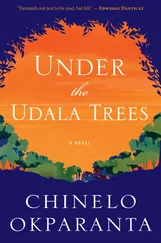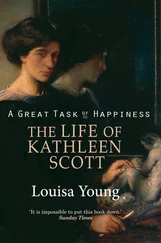Chinwe and Eze stand quietly in the corridor for a while, Chinwe listening to the sound of the oscillating fan in their room. Even though it is a distance away, its sound is loud, because, of course, everything is quiet now. (This is also the first time the two robbers appear to communicate with each other, but even that is a silent sort of communication, one which they do solely with their eyes.)
After the silence, the man holding the gun to Eze’s head says: ‘That car outside, the white one, we’ll be needing the keys.’
Eze has a look of horror in his face, as if he’s just seen death, which is funny, because until then, he’s been acting bold and courageous, resisting and all.
‘The keys,’ the man repeats. ‘And actually, we’ll also be needing you to come out and start it for us.’
One can only imagine the emotions Eze must have been feeling inside, because that car was his prized possession. (Every once in a while, before the robbery, that is, he’d taken to reminding Chinwe that it was the only one of its kind in the whole of Rivers State, that there were only two of them in the whole of Nigeria, the other owner being a ‘big’ man, a governor of one of the other states.)
In any case, the robber has to drag Eze again in order to get him to move, smacking Eze’s head every so often with the gun. ‘Start the car, and no wahala for you; don’t start the car, and we’ll shoot,’ the man says as he drags Eze.
Chinwe and Eze manage to make eye contact somewhere in the middle of all the dragging and head smacking. Chinwe looks at Eze with pleading eyes. Just give them the car. Give them the car and spare our lives . But the more she looks at him, the more defeat she feels, because she knows that she’s no match for the car.
So she just stands there, watching the man drag Eze outside. She remains inside with the second robber still pointing his gun at her head. But even if she is inside, she knows what things are like outside: the ground paved with gravel and grass, and the bush near where the 505 is parked — green, saturated with the red of the hibiscus flowers. She and Eze stood in front of that bush for a picture on the day that Eze brought home the 505 SRS.
It was her mama who took the picture. Here and there lizards were crawling over the gravel stones. As she stands there, with the robber holding a gun to her head, she remembers her mama holding the camera, taking a picture of her and Eze, and of the car. And somehow, she thinks of the wedding game she used to play with her papa. Suddenly, she imagines that if the camera could have spoken the day her mama took the picture, it would have said something like this: The step which you are about to take is the most important into which you will come… Do you take this car to be your wedded wife, as long as you both shall live? And Eze would nod ecstatically at the camera, and he would fervently say, ‘I do.’
And that answer would be correct.
In any case, the way she tells the story, some more time passes, quiet time, and Chinwe allows herself to get lost in her thoughts. She moves on from the memory of the wedding game, and she remembers that the police station is not too far down the street. She starts to think that maybe one of the real police officers will somehow see or hear something. She also thinks of Ehoro, the estate’s owner. She remembers that he had begun carrying a gun the moment the threat of the robbers became real, around the time they held that ‘anti-robbery collection’ meeting. She becomes hopeful that someone, either a real police officer, or Ehoro himself, will come to the rescue.
She hears the gunshot then. She shrieks, as if the bullet had been fired at her, as if it were piercing her own body.
The story goes that after the robber leads Eze to the 505 SRS (somehow the man gets Eze to produce the key), the man opens the car door, asks Eze to enter and to start the car. Eze gets in, puts the key into the ignition, but the car refuses to start. The man asks him to try again. Eze turns the key in the ignition, the engine makes a squeaking sound, but it still does not start. Meanwhile, Eze holds his hands up in the air, at the sides of his face, shakes his head, continues to shake it, as if he does not know why the car won’t start.
The man pulls Eze out of the car, drags him to the Land Rover, which is on the other side of the front yard. He believes that Eze is purposefully doing something to prevent the car from starting (and he is right). In any case, when he’s dragged Eze to the Land Rover, he asks Eze to raise his hands over his head, all the way up, as if Eze himself is the criminal, as if he is under arrest.
The man steps back so that there is some distance between him and Eze. Then he aims the gun at Eze. Maybe he is just about to fire when he hears the gunshot. Maybe he had no intention of firing at all — just a little something to scare Eze into starting the 505. Whatever the case, Eze’s robber hears the gunshot too, and suddenly he is on the tips of his toes, running away with his gun, across the front yard, even jumping over the glass-lined gate of the estate to escape.
At least, this is how Eze told the story of what happened outside.
Inside, after they hear the shot, the robber who is holding the gun to Chinwe’s head lowers his gun. He appears confused, puzzled, then he turns to the door that leads to the garage and out to the driveway, and he too runs off.
There is some screaming outside, and the sound of racing feet, but Chinwe stays inside and just waits, too stunned even to know what she is waiting for.
Not very long after, Mr Ehoro enters the corridor with Eze by his side. There is sweat dripping from Ehoro’s forehead, and he wipes it with the back of his hand. There is sweat also dripping from Eze’s forehead, but Chinwe pays that no mind. Instead, she looks for the blood on Eze’s chest. But there is none.
Eze starts to tell the story of what happened outside then, how he refused to start the car by not pressing one of the buttons he should have pressed first before inserting the key into the ignition. He laughs at his cleverness. He winks at Chinwe, a self-congratulatory wink, as if to say, ‘Aren’t I something?’ It is now Friday, and Eze laments that it is not Thursday all over again, or Saturday, or Sunday, so that he can tell the story at once to the entire congregation at the Kingdom Hall. For now, his imagination will have to do, and so he imagines breaking the news, and he anticipates what their reaction will be — gratitude to God for the miracle.
Chinwe listens to him for some time. Ehoro stands by Eze’s side, listening too. Sometimes he laughs at the things Eze says.
‘I’m leaving,’ Chinwe says, numbly. It comes out as a whisper, and Eze continues to speak, because he doesn’t hear her.
She turns around and heads for their bedroom. The fan is still oscillating, and the metal safe lies open on their bed, empty. She moves it aside gently. She goes to her wardrobe, opens it, takes out a large suitcase from its bottom shelf. She removes a few of her clothes from their hangers, folds them one by one and puts them into the suitcase. She is still folding the items when she hears the sound of Eze’s footsteps approaching. She sits on the bed, by the open suitcase, and waits for him to walk into the room. As she waits, she imagines that he is already inside the room, that he has made his way to her in the still dark room. She imagines that he wrinkles his forehead, like a question, and reaches out with his arms to stop her from what she is doing.
She imagines him telling her that she will break her mother’s heart by leaving him. Telling her that even her mother would want to know the meaning of all this. (Of course, he would be right.)
She imagines that he runs off to find his New World Translation, and that he returns with it, and he reads from it to her, about marriage, about God’s disapprobation of divorce.
Читать дальше












